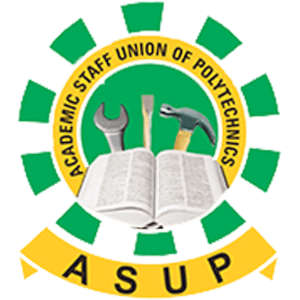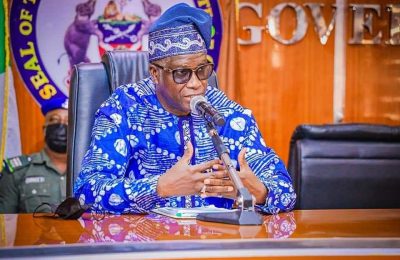

WORRIED by the continuous discrimination against holders of Higher National Diploma, HND, in Nigeria, the leadership of Academic Staff Union of Polytechnics, ASUP, has concluded plans to host a round table meeting with critical stakeholders on how to reverse the fate of polytechnics in Nigeria.
The roundtable expected to discuss other crucial issues will also have in attendance, policymakers, chief executive of polytechnics, chairman of governing councils, among others.
Briefing journalists in Abuja on Monday, the ASUP President, Comrade Anderson Ezeibe said Nigerian polytechnics possess both the human and infrastructural capacity to provide beyond the HND, which is currently the highest permissible form of certification for them
He called for a review of educational policies and laws to permit polytechnics to produce masters and Ph.D. graduates.
While denying poor funding for polytechnics and discrimination of polytechnic graduates in the labor market, he said that the development has defaced the sector and resulted in extremely low applications for the institutions.
Comrade Ezeibe lamented that the limitation has grossly impeded the growth of polytechnics and has encouraged staff migration due to a lack of fulfillment.
The ASUP President also condemned professional bodies that exclude polytechnic graduates from taking qualifying exams even though they have mostly come out the best, adding that it had further de-marketed the sector.
On the 3.2 billion dollars proposal for education in the 2022 fiscal year, Ezeibe said it was an indication that there is less emphasis on education in Nigeria.
He said the money budgeted for education for the entire nation can be compared to the annual budget of many tertiary institutions abroad.
The ASUP President insisted that poor funding for the educational sector, especially the polytechnics, has been responsible for the dwindling quality of education and mass turnout of unqualified graduates in the country.
He disclosed that the union would be hosting a round table meeting with critical stakeholders, policymakers, chief executive of polytechnics, chairman of governing councils, etc to discuss crucial issues that will reverse the fate of polytechnics in Nigeria.
He said, “The first thing we would be discussing at the roundtable is the issue of certification. As we speak, the Highest National Diploma is the highest certification permissible in our sector. We all know what holders of this certificate have been subjected to currently in both public and private sectors of the economy. We do not think this should continue.
“We do not think that our polytechnics should continue to have this as its highest level of certification because that is not what the trend is in other developed countries that started the way we started.
“We also believe that we have enough capacity, both in terms of human and infrastructure, in certain programs in different polytechnics to go beyond the National Diplomas.
“This is an issue we need to interrogate: are we being limited by legal issues, or are we being limited by policy issues? looking at legal issues, you know we have the polytechnic act which was signed in 2019 that now gives a mandate to the Nigerian polytechnics to produce high labor manpower, and of course, high labor manpower has no limitations.
“We see polytechnics in different parts of the world produce Ph.D. holders and we keep wondering what the policy impediments are limiting the growth of Nigerian polytechnics in this particular dimension.
“The impact has been much. Staff movement has been fluid. A lot of staff migrate to other sectors because they are not being fulfilled.
“The other issue is funding. Recently the government budget was presented to the National Assembly. We have not seen a breakdown of what has been allocated to our polytechnics. The budget proposal for the whole educational sector before the National Assembly is just about 3.2 billion dollars for education for the entire country; this is the budget for some schools abroad.
“I am comparing it to the budgets of institutions. And that is what is budgeted for the whole education sector of a nation.
“Funding is a key issue. It is very critical. It is something that we need to interrogate. We need to find an alternative, more sustainable way to fund our schools. If we continue to wait for handouts that came from the budgetary allocations then we can not get to where we are supposed to.
“There is a general downtown as regards the quality of education in Nigeria. It is not only in the polytechnics. If the instructional materials required are not there, the lecturers cannot do magic.
“Our union has engaged the government several times on making available instructional materials and having the right kind of environment to discharge their duties yet not much is being done. In some states for example, where lecturers are owed salaries for 30 months there cannot be adequate learning in that kind of place.
“Polytechnics graduates are being discriminated against in the labor market. They are being disadvantaged and denied to compete favorably with their peers from the Universities. We see some professional bodies preventing polytechnic products from engaging in professional exams.
“We see architects trying to stop polytechnic products from taking qualifying exams. The engineers are following suit. These are all ways the sector is being de-marketed. How do you expect people to be encouraged to go there?
“Indeed, more polytechnics are constantly being established around the country, but from all indications, these are just constituency projects and not aimed at impacting the nation.”
Reach the right people at the right time with Nationnewslead. Try and advertise any kind of your business to users online today.
Kindly contact us for your advert or publication @ Nationnewslead@gmail.com Call or Whatsapp: 08168544205, 07055577376, 09122592273







